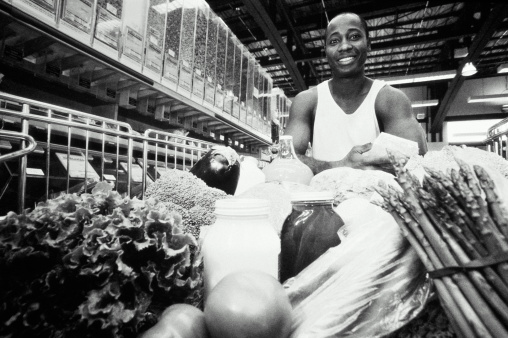
Eating healthy doesn’t mean you should have to break your budget or sacrifice taste to do so. It’s easy to get sucked in by grocery merchandising tricks, and it’s also normal for most of us to fall into a mealtime rut, eating the same foods over and over. You can save money and still have quality. A lot of people say that it’s cheaper to eat unhealthy, but with organization and creativity, you can eat healthy on a budget. To start, here’s a quick review of basic tips for healthy eating:
- Limit your intake of junk food and alcohol
- Drink lots of water (at least 8 cups a day)
- Limit salty and sugary foods
- Avoid eating many foods that are high in saturated fats
- Make “variety” the watchword of your eating
Following are a few more hints that can help you save money:
- When cooking a big meal, make extra to freeze or use later in the week for lunches or quick suppers. Double recipes, then freeze half.
- Save your vegetable trimmings to make your own vegetable stock. Not only do you save money, but vegetable stock also makes a nutritious base for casseroles, soups, and slow cooker recipes.
- Buying in bulk is almost always less expensive; you can freeze perishable items (such as meat, milk, and even bread) in smaller portions to use as needed. It’s always a good idea to buy nonperishable items in bulk (canned foods, dried beans and grains, etc.).
- Use less expensive cuts of meat for casseroles you slow cook; add extra vegetables and beans to make the meal go further. Capitalize on one-pot dishes, which generally save prep time, money, and dishwashing—and often make great leftovers.
- Limit your dining out, especially when it comes to fast food, since you’ll find yourself spending unnecessarily on items that are high in fat, salt, and calories, which short-change you in the nutrition department.



